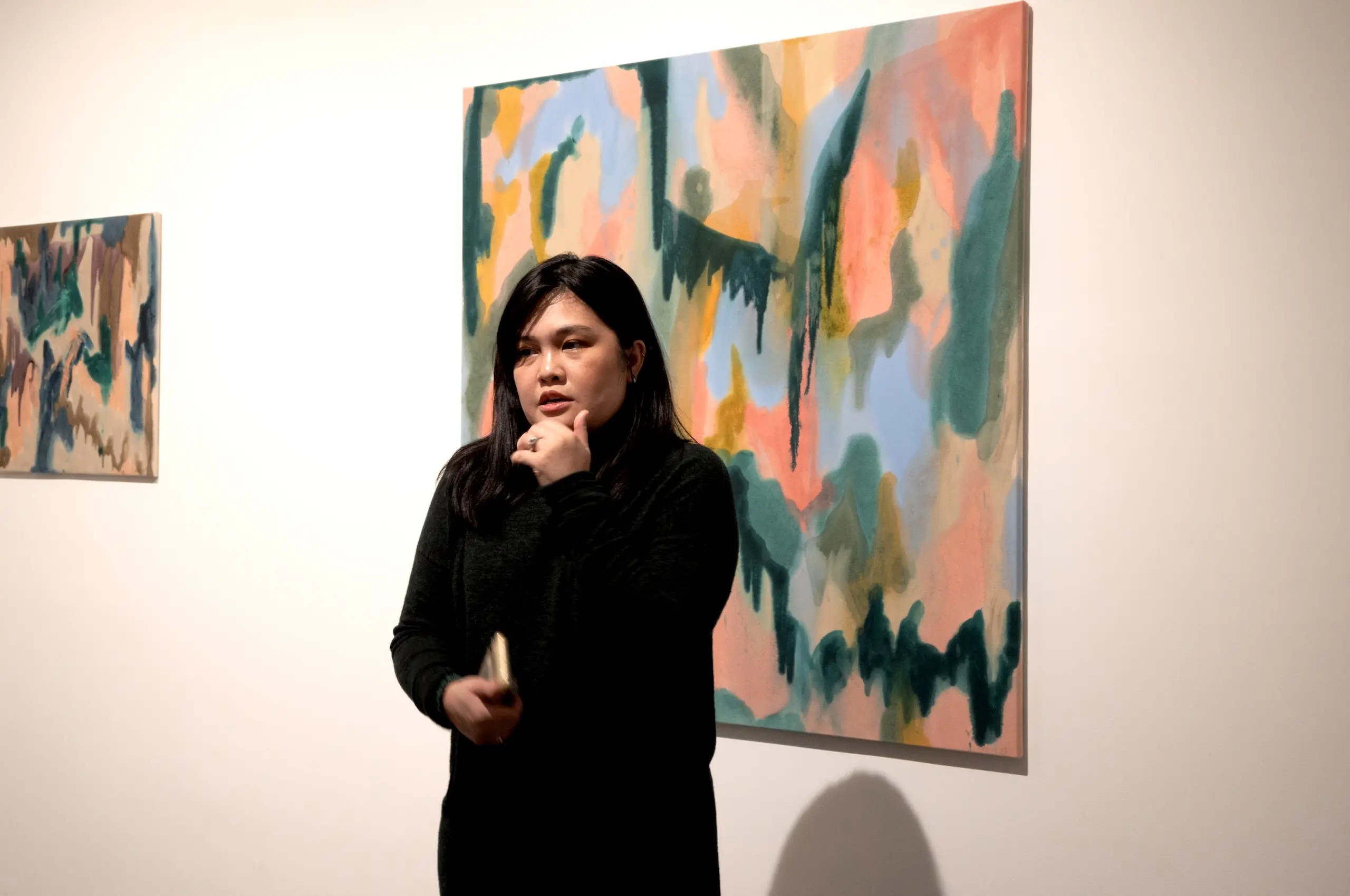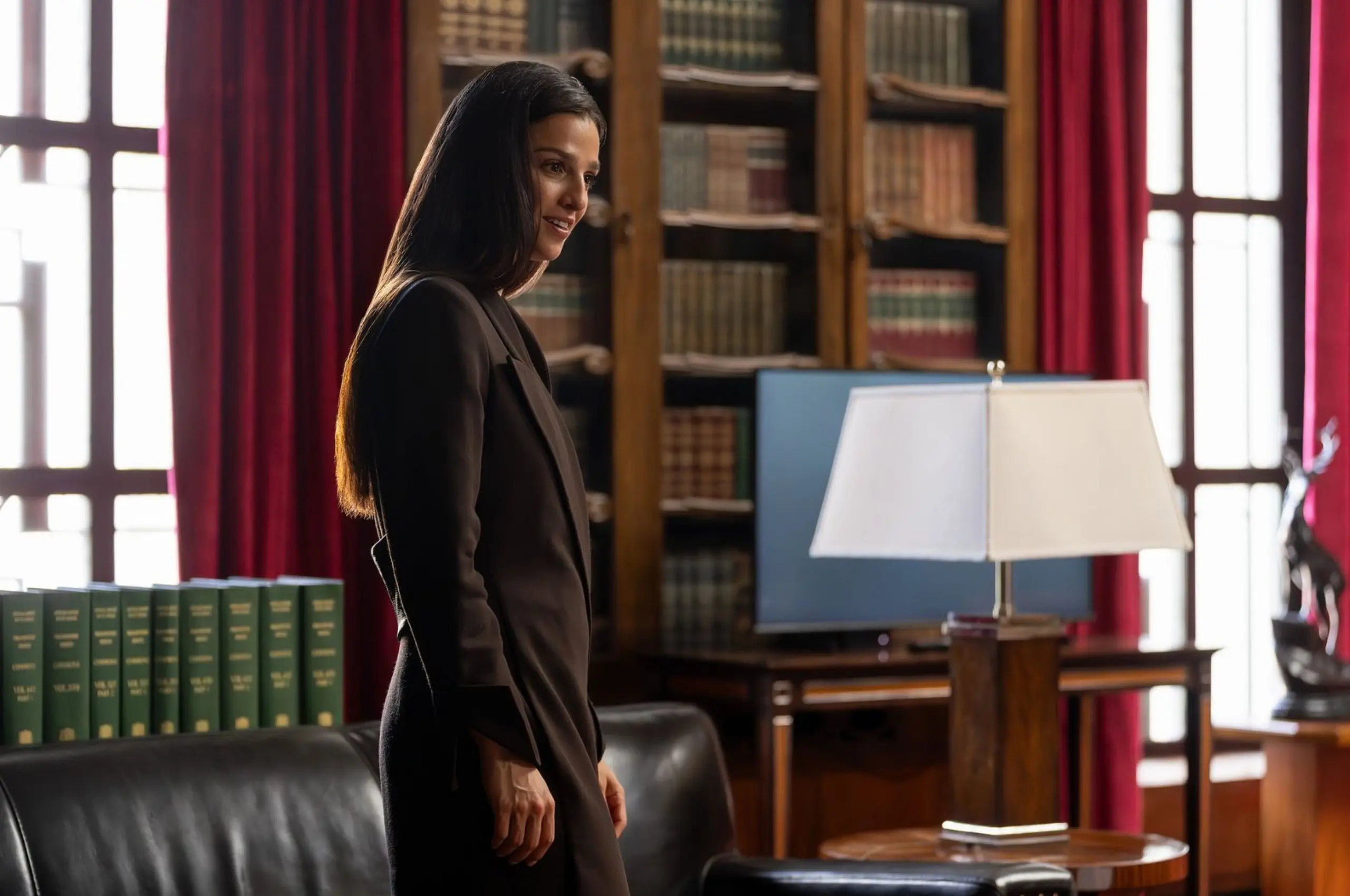The 2000s had Sex and the City, while the 2010s delivered Girls and Fleabag. So far, no show from this decade has quite successfully captured the chaotic, unfiltered spirit of the Messy Millennial TV canon — until now.
Lena Dunham’s latest series, Too Much, wastes no time introducing a protagonist just as gloriously messy as her predecessors, including Hannah of Girls, and Carrie of Sex and the City. Jessica, played by Megan Stalter and best known for her role in Hacks, struts through the streets of London in the pilot’s opening shot, her inner monologue aimed not at herself, but at Wendy Jones (Emily Ratajkowski) — the woman we soon learn is dating her ex.
Trading in the grimy streets of New York for London’s grey skies, Jessica is set on reinventing herself. With that said, she’s still deep in her post-breakup spiral, apparent by her constant stalking of Wendy online and secretly posting video diaries to a private dump account, each one addressed to her ex’s girlfriend. Still, Jessica is open to the idea of love and continues to harbor fantasies of “love stories set in rural England”, as she neatly puts it.
Though far from the Mr. Darcy she envisioned, she soon meets and pursues a relationship with a jobless indie musician, Felix (Will Sharpe), in a meet-cute involving a toilet roll passed between stalls in a pub bathroom. Not exactly swoon-worthy, but it’ll do. Their relationship doesn’t have the manic highs and crash-landings of Hannah and Adam in Girls. Instead, Too Much unfolds in soft, strange beats — quiet reassurances, deep pillow talks, and the weird smells people bring into each other’s lives. As Felix points out in one episode, “Why does your dog smell of vinegar? You’ve never explained that!”
As their relationship develops, Felix’s red flags begin to show: He doesn’t have a permanent place and resorts to couchsurfing, can’t tell the difference between polygamy and monogamy, and sports a misspelled butt tattoo of a female friend’s name. But Jess isn’t without her flaws either, and Felix doesn’t hesitate to call them out like he’s reading from a checklist. She ends every sentence with a question mark, sends him paragraphs of texts, talks incessantly about her ex, and even manages to set herself on fire the day they meet.
Messy Metamorphosis

Make no mistake: Jessica is undeniably self-destructive and, at times, exasperating — except her tendency to overshare and be self-righteous is multiplied threefold. Throughout the show, it’s clear that Jess’ trauma from her previous relationship may be a hidden explanation behind some of her questionable decision-making. But knowing Dunham, it all feels intentional. Writing characters who are deeply flawed has always been her forte, and in Too Much, she uses Jess’s chaotic energy to explore a deeper truth: that transformation is messy, ongoing, and imperfect — and that you can still be loved even if you haven’t fully become the person you hoped to be. Through her, Dunham pokes at a very real, very raw idea: that love doesn’t wait until you’ve figured it all out, and being “too much” might just be enough for the right people.
In an era obsessed with curated and filtered personas, Too Much holds up a disarming mirror, suggesting that maybe we’re not meant to shrink or silence parts of ourselves that feel too loud, too messy, or too much. Instead, there’s power in showing up as we are, even if it means risking we won’t be loved. Dunham, who based the show on her own experience of moving to London and subsequently meeting her now husband, isn’t afraid to tap into a wellspring of emotions, encompassing both love and grief. In one poignant scene, Felix lies in bed beside his longtime friend and ex, Polly (Adèle Exarchopoulos). As they talk, she recalls caring for him, staying awake just to make sure he was still breathing — a vague nod, perhaps, from before he was sober. “I waited around so long because I knew it was in you to be good,” she says. “And it’s weird, because now all this good is just going to someone else.”
Dunham has always had a talent for crafting rich backstories. The series boasts a standout ensemble cast, including Andrew Scott as a pompous, recently divorced director, and Naomi Watts and Richard E. Grant as a married couple — Watts plays the poised wife, while Grant is Jessica’s judgmental boss at an advertising agency.
However, the show’s sprawling cast might also be its downfall. While some supporting characters are great, others feel completely unnecessary — like the two other Pollys, for instance, and the introduction of Felix’s former lovers — including a dominatrix named Linnea (Adwoa Aboah) and Wheezy (Josephine de La Baume), an ex still eager to sleep with him — clutters an episode already overwrought with characters.
At its best, the series successfully captures the feeling of being stuck in a toxic relationship, the way we clock the red flags, yet rationalize them as temporary lapses, hoping for change. It’s in the quiet, unguarded moments that the show lands its emotional punches. In one episode, Felix candidly observes that Jessica isn’t always kind to herself, evidenced by how she eats cold phở and insists on sleeping with the curtains wide open. “If I don’t sleep with the curtains open, how will I know it’s morning?” she replies. Felix pauses, then says, “I’ll be your curtains.”
In Too Much, Dunham offers a more reflective, emotionally grounded portrait of love, identity, and selfhood — one that teeters between moments of self-abrasion, shame, attraction, and intimacy. Though she’s described the series as a homage to rom-coms, it plays more like a quiet rebellion against them, as the show decidedly veers away from grand, sweeping declarations in favor of something more honest: we all have baggage, and that inevitably spills over into any relationship we enter. But in this era of modern love, where we’re so quick to dismiss others’ flaws, maybe being too much is the most radical kind of hope we have left.







